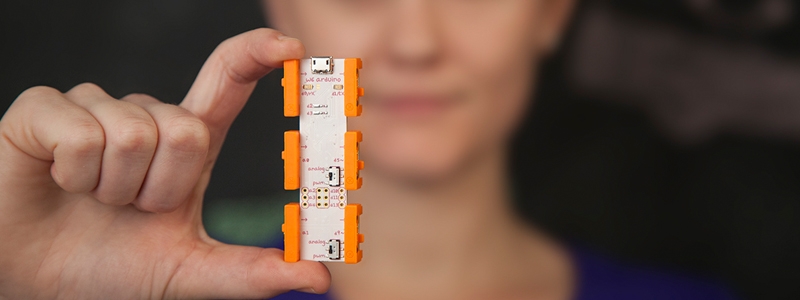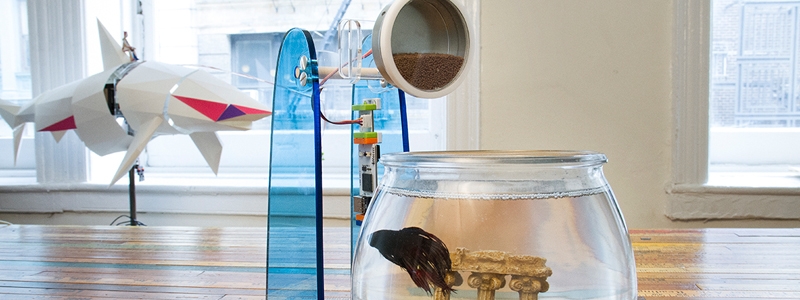Problem: The difficulty students experience when comprehending theoretical classes in subjects such as science, technology, engineering and mathematics is the challenge faced by Littlebits Education. The project encourages the use of creativity and hands-on learning by means of electronics. In order to do this, Littlebits Education sells products that consist of electronic components that can be used in a practical and easy way to invent and manufacture objects. The company was founded in 2011 by Ayah Bdeir who graduated from Massachusetts Institute of Technology Media Lab, was co-founder of the Open Hardware Summit, and is a member of the global TED community.

Solutions: There are several options of products available for use in education. The circuits are joined by magnetism, like they were pieces of Lego. There is no need for soldering or the use of dangerous tools to assemble the modules. The idea is that the teachers work on issues such as problem solving, teamwork and learning based on projects with their students through the development of actions that involve the process of creation of design.
One of the products is the Student Set, which costs US$ 232.90 and can be used by up to 8 students. It consists of a set of electronic modules that permits the creation of complex circuits in a few seconds and the combination of these with other materials to develop projects. Other larger options are available, such as the Workshop Set, at US$ 998.75, for up to 20 students, or Pro Library, at US$ 3,299, for the use of up to 32 people. All the products are adaptable, reusable and designed to encourage students to explore and innovate. The products come with explanations so they can be used by anyone, even those who have never worked with electronic circuits.
Some examples of uses already made of the products are the creation of music by people with special needs and the use of the modules to prove that the growth of plant roots is affected by gravity.

Outcomes: Use of the modules by students permits hands-on learning, which leads to a more profound understanding of concepts based on application in real life scenarios. The students also learn how to work on solutions for problems and work in a team to overcome challenges. The teachers become part of a group of dynamic educators, open to the use of technology, and with this, can help to change the world. The products have already won over 25 technology and education awards and are sold in over 70 countries.






